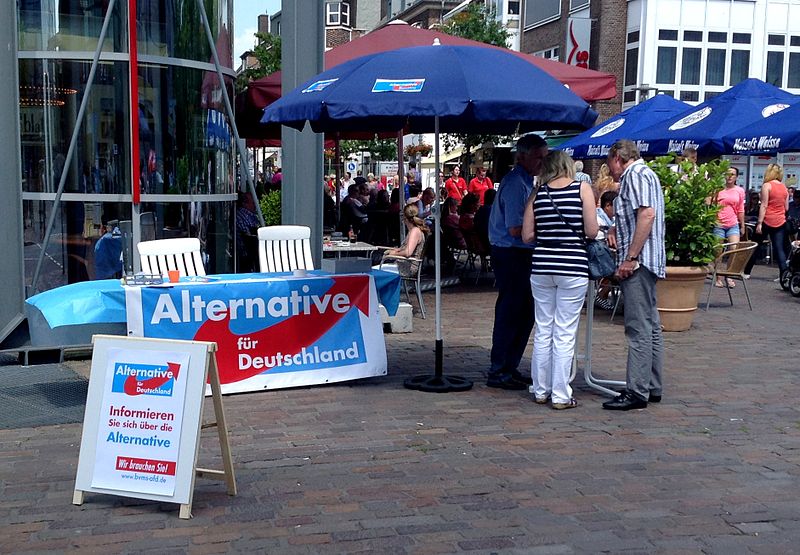
Voters in the German state of Brandenburg went to the polls on Sunday for a regional election, with the far-right Alternative for Germany (AfD) expected to emerge as
the leading party. The AfD is projected to outperform Chancellor Olaf Scholz's Social Democrats (SPD) in a region long considered an SPD stronghold.
The AfD recently made history as the first far-right party to win a state election in Germany since World War II, claiming victory in Thuringia on September 1 and coming close to taking first place in Saxony the same day. Despite these gains, the AfD has struggled to convert electoral success into governance, as other political parties refuse to form coalitions with them. This means that even if the AfD leads in Brandenburg, without a majority, it is unlikely to form part of the regional government.
The party’s rise is part of a broader trend across Europe, where far-right groups are tapping into public concerns over economic uncertainty, immigration, and the ongoing war in Ukraine. These issues resonate particularly strongly in eastern Germany, where many voters feel left behind since the reunification of East and West Germany in 1990. The AfD has also benefited from dissatisfaction with Scholz's federal coalition government, which has been plagued by internal strife.
Polling stations in Brandenburg close at 6 p.m. local time, with exit polls and preliminary results expected shortly afterward. Hans-Christoph Berndt, the AfD's candidate for state premier, expressed optimism about his party's chances, citing strong support in recent weeks. "If we maintain this momentum, we can drive real change in Germany," Berndt said, though he acknowledged that Brandenburg’s future wouldn't be determined solely by Sunday's vote.
An AfD win in Brandenburg would be particularly humiliating for the SPD, which has governed the state of 2.5 million people since reunification. It would also raise further doubts about Scholz's leadership, as he remains the least popular chancellor in modern German history. With federal elections looming next year, an SPD defeat in Brandenburg could have significant political ramifications.
Brandenburg's incumbent SPD premier, Dietmar Woidke, has distanced himself from Scholz during the campaign, focusing instead on his state’s economic achievements over the past five years. He highlighted projects like the opening of a Tesla factory and the expansion of Brandenburg airport, now Germany’s third-largest aviation hub. Woidke has also been critical of Scholz’s federal coalition and its policies.
In recent weeks, the SPD has narrowed its polling gap with the AfD. A survey released Thursday by Forschungsgruppe Wahlen put the AfD at 28% and the SPD at 27%, with the conservative CDU at 14% and the newly formed Sahra Wagenknecht Alliance (BSW) at 13%.
At a campaign event, Woidke vowed to prevent right-wing extremists from gaining power in Brandenburg. "My top priority is ensuring that extremists have no say in our state," he declared. Woidke has even threatened to step down if the SPD finishes behind the AfD, a sentiment echoed by AfD leader Tino Chrupalla, who called on Scholz to resign if his party falters.
Meanwhile, Scholz’s federal coalition partners, the Free Democrats (FDP) and the Greens, are struggling to meet the 5% threshold to enter Brandenburg's state parliament, according to recent polls. Nationally, the coalition parties are polling below the conservative opposition, though political analysts caution that much could change before the federal election in September 2025. Photo by Ziko #noAfD van Dijk, Wikimedia commons.



































